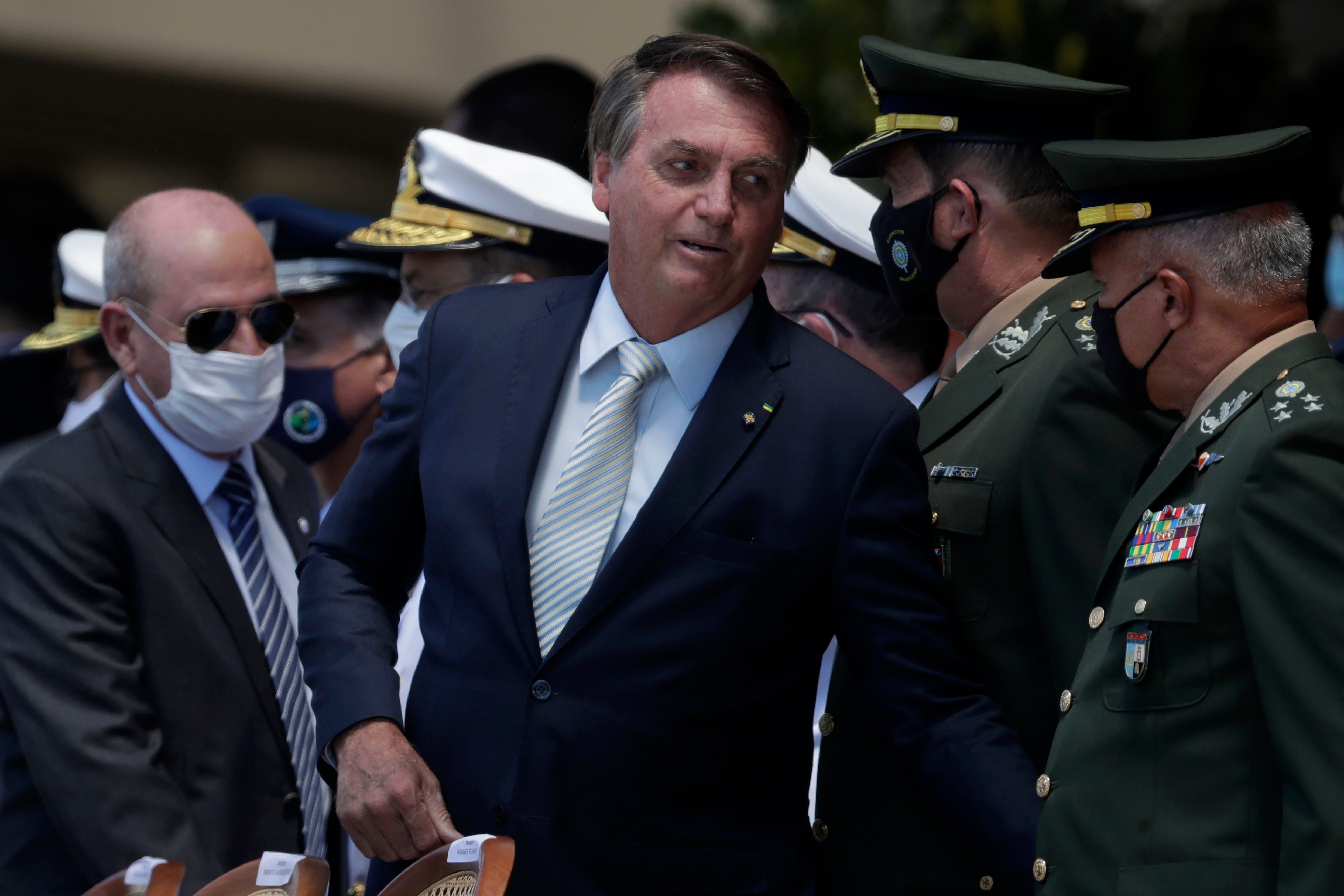Bolsonaro allies win in Congress and slow impeachment drive
Brazil’s President Jair Bolsonaro has helped elect two allies to the top jobs in both houses of Congress, a success that is expected to help help him blunt a campaign by protesters who have been calling for the conservative leader to be impeached

President Jair Bolsonaro helped elect two allies to the top jobs in both houses of Brazil's Congress a success that is expected to help him blunt a campaign by protesters who have been calling for the conservative leader to be impeached.
Deputy Arthur Lira of the center-right Progressive party was elected by his colleagues Monday to be speaker in the Chamber of Deputies, while Sen. Rodrigo Pacheco of the center-right Democrats party was chosen as the Senate president.
Any impeachment move would have to start in the lower house, where outgoing Speaker Rodrigo Maia has been a critic of the president though also rejecting calls for an impeachment effort. Maia’s candidate to be his success, Luiz Felipe Baleia Rossi, got 145 votes in the lower house dispute while Lira got 302.
In the Senate, Pacheco also had the support of opposition parties despite Bolsonaro’s explicit support.
Neither Lira nor Pacheco mentioned Bolsonaro in their victory speeches, and both promised to lead an independent legislature.
In accepting the leadership of the lower house, Lira said, “Neutrality should mark this presidency, the respect to the customs, to the minority and the majority.”
Still, the Brazilian president published a picture of himself with Lira on his social media channels.
Opponents of Bolsonaro, who is midway through a four-year term, have been staging street demonstrations to demand his ouster over his handling of the coronavirus pandemic, which has caused more deaths in Brazil than any other nation except the United States.
Beatriz Rey, a political scientist at the Center for Latin American & Latino Studies at American University in Washington, said the two wins reduce Bolsonaro’s risk of being impeached, although they don’t nullify it.
“Bolsonaro has won, but it is not clear whether he will get unconditional support,” Rey said. “He has no coalition in Congress and that is why he is so active in this election. But he can still lose control if he has an issue with spending, if his Cabinet reshuffle doesn’t work. The president needs the support of these center-right parties.”
Bolsonaro abandoned his own party shortly after being elected president, and he has struggled to find support for his policies in a complicated congressional landscape of many parties.
Bolsonaro’s approval ratings have dipped into the low 30% range — a situation that analysts have attributed to the delayed rollout of Brazil’s coronavirus vaccination program and to the end of cash handouts to the nation’s poor.
His relative weakness has boosted the bargaining power of a centrist group of lawmakers, said Márcio Coimbra, coordinator of post-graduate studies in institutional and government relations at Mackenzie Presbyterian University.
Coimbra said the price of their backing may start with the doling out of government positions — the sort of back-scratching politics that Bolsonaro had vowed to avoid when he ran for president on an anti-corruption platform.
A report in Monday’s edition of the newspaper Estado de S.Paulo said Bolsonaro’s administration paid more than $92 million in funds earmarked for special projects backed by individual lawmakers in January, a record figure for that month. Analysts linked the amounts to the congressional leadership elections, a move typical of Brazilian presidents that Bolsonaro had promised to end.
Centrist party officials reportedly have designs on ministries such as health, mining and regional development, according to Bolsonaro aides and influential lawmakers who spoke on condition of anonymity.
“The victory of Lira will give the impression of an alliance, of solidity of the relationship with Congress to Bolsonaro,” said Thiago de Aragao, director of strategy at political risk consultancy Arko Advice. “But in fact, it will be something that still requires negotiation every single every day, and negotiation on every single issue to be voted.”
___
Associated Press writer Débora Alvares reported this story in Brasilia and AP writer Mauricio Savarese reported from Sao Paulo. AP writer David Biller in Petropolis, Brazil, contributed to this report.
Bookmark popover
Removed from bookmarks